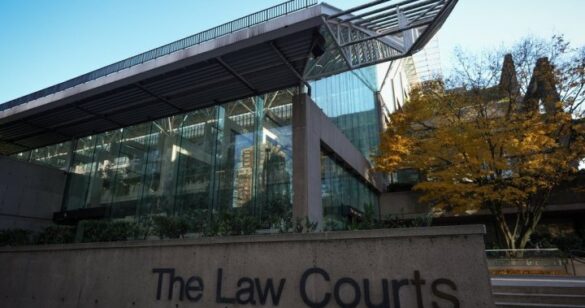A British Columbia court’s recent acquittal of Leon-Jamal Barrett on sexual assault charges, citing extreme intoxication as the cause of non-mental disorder automatism, has sparked significant public outrage. Barrett, who was under the influence of psilocybin and cannabis during the 2019 Surrey incident, was found not criminally responsible by Judge Timothy Hinkson based on legal precedents that permit such a defense under specific conditions. The decision has ignited widespread debate over the legal system’s approach to crimes committed under voluntary intoxication and raised concerns about the implications for victims and community safety.
The case revolves around an incident that occurred in Surrey in 2019, where Leon-Jamal Barrett was accused of sexual assault while reportedly under the influence of psilocybin and cannabis. During the trial, Barrett’s defense argued that his extreme intoxication resulted in a state of automatism, a condition in which a person acts without conscious control, effectively amounting to a non-mental disorder automatism. This defense led Judge Timothy Hinkson to acquit Barrett, applying legal precedents that recognize extreme intoxication as a potential excuse for criminal liability under very specific and stringent circumstances.
Legal Background and Precedents
The decision by Judge Hinkson is grounded in Canadian legal principles that differentiate between actions committed voluntarily and those that occur while the accused is in a state equivalent to automatism due to intoxication. The Supreme Court of Canada has previously ruled that extreme intoxication can, in rare cases, be considered analogous to a mental disorder, thereby negating the requirement for criminal responsibility. This defense is highly controversial and seldom successful, reflecting the complexity of balancing individual culpability with the influence of substances on behavior.
Public Reaction and Concerns
The acquittal has incited widespread public discontent and debate. Critics argue that permitting extreme intoxication as a defense in sexual assault cases undermines justice, potentially allowing offenders to evade accountability. Victim advocacy groups have voiced concerns that such rulings may discourage reporting of sexual crimes and erode trust in the legal system’s ability to protect victims. Community safety advocates also question the implications for preventing similar offenses if intoxication can absolve criminal responsibility.
Implications for Victims and Policy
This case highlights the challenges faced by the justice system in addressing crimes committed under the influence of drugs or alcohol. It raises critical questions about how to fairly adjudicate cases where intoxication impairs consciousness without condoning harmful conduct. The ruling may prompt calls for legislative review or reform to clarify the boundaries of intoxication defenses, ensuring that victim rights and community safety remain priorities.
Ongoing Debate and Future Developments
Legal experts and policymakers continue to debate the appropriateness of the extreme intoxication defense, particularly in serious offenses such as sexual assault. As this case gains national attention, it may influence future judicial decisions and prompt discussions on balancing offender accountability with complex neurological and psychological factors. Stakeholders advocate for increased public education and possibly enhanced support systems for victims to mitigate the broader social impacts of such rulings.
In conclusion, the acquittal of Leon-Jamal Barrett on the grounds of extreme intoxication continues to stir complex legal, social, and ethical questions. While grounded in established legal precedents, the decision underscores the challenges the justice system faces in handling offenses committed under voluntary intoxication. The strong public reaction and concerns voiced by victim advocacy and community safety groups highlight the need for ongoing scrutiny and potential legislative review. Moving forward, balancing the imperative of offender accountability with considerations of substance-induced impairment remains a critical issue, warranting continued dialogue among legal experts, policymakers, and the broader community to ensure justice and protection for all parties involved.

